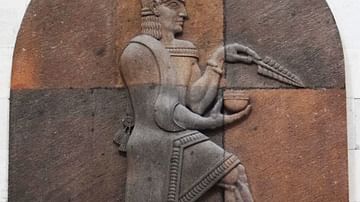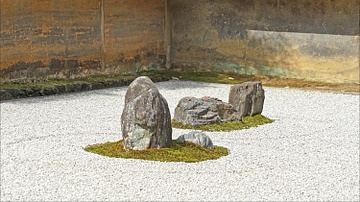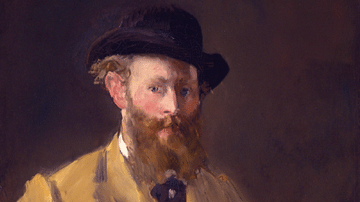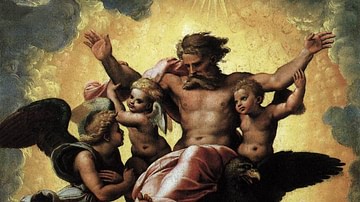Search
Did you mean: Symposium?
Search Results

Definition
Persian Seven-Colored Tiles
Persian Haft Rang tiles, also known as seven-colored tiles, are highly decorative glazed tiles used to adorn the exteriors and interiors of both secular and religious buildings. The tiles first came to prominence from the 15th century and...

Definition
Idunn
Idunn (pronounced Ih-dune) is a fertility goddess in Norse mythology who holds the apples of eternal youth the gods rely on to remain young and healthy. The Norse gods were not immortal – they just lived very long lives – and the apples of...

Definition
Book of Revelation
The book of Revelation or the Apocalypse of John of Patmos is one of the most famous books in the New Testament. Written near the end of the 1st century CE, it is the only apokalypsis (Greek: "unveiling of unseen realities") that was included...

Definition
Urartu Religion
The religion of the Urartu civilization, which flourished principally in ancient Armenia from the 9th to 6th century BCE, was a unique mix of indigenous, Hurrian and Mesopotamian gods and symbolism. The pantheon was headed by the trinity...

Definition
Ryoanji
Ryoanji (Ryōan-ji) is a Zen Buddhist temple in Kyoto, Japan which is today most famous for its Zen rock garden with its enigmatic arrangement of stones. Founded in the 15th century CE, the temple is one of the most visited tourist spots in...

Definition
Paul Cézanne
Paul Cézanne (1839-1906) was a French post-impressionist artist. Although he struggled for recognition in his own lifetime and often lacked confidence in his work, the artist's unique style, use of light and colour, and his interest in geometric...

Definition
Persian Rose-and-Nightingale Paintings
Rose-and-nightingale paintings and patterns (gul-u-bulbul) are a subtheme of the bird-flower (gul-u-morḡ) genre in Persian art. Bird-and-flower paintings are of Chinese origin and include pictorial elements such as flowers and plants, birds...

Definition
Edouard Manet
Edouard Manet (1832-1883) was a French modernist painter whose work is celebrated for its candid realism. Works like Olympia, an entirely modern nude, broke the artistic convention that great art should not concern itself with contemporary...

Definition
Bai Juyi
Bai Juyi (l. 772-846) was one of the greatest poets of the Tang Dynasty (618-907) along with Li Po (l. 701-762) and Du Fu (l. 712-770). He was a government official who got in trouble with authorities a number of times for not following the...

Definition
Ezekiel
Ezekiel was both a priest and a prophet who lived in the 6th century BCE. The prophets of Israel were oracles (a term for a person as well as a place) for ways in which humans communicated with their gods. The oracle was possessed by the...